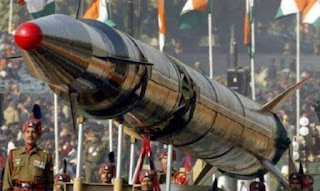Patna-Indore Express Tragedy

Patna-Indore Express Tragedy Dr Arvind Kumar* *President, Indi Water Foundation, New Delhi. Recent Patna-Indore Express tragedy is a national calamity that has claimed about 150 deaths and many scores of people have sustained injuries. Undoubtedly, government has announced monetary compensation to the next of the kin and ex-gratia grants to those injured in this tragedy; nevertheless, this is not going to lessen the pain of those aggrieved families. Political parties should refrain from taking political mileage out of this tragedy; rather impress upon the ruling dispensation the necessity of introducing reforms in the Indian Railways, which is the largest employer in the public sector along with speeding up the programme of modernization. Prior to embarking on ambitious programmes like bullet train, it would be advisable to improve infrastructure facilities on the existing Railway system and make it more viable and efficient along with facilitating rail connectivity i


